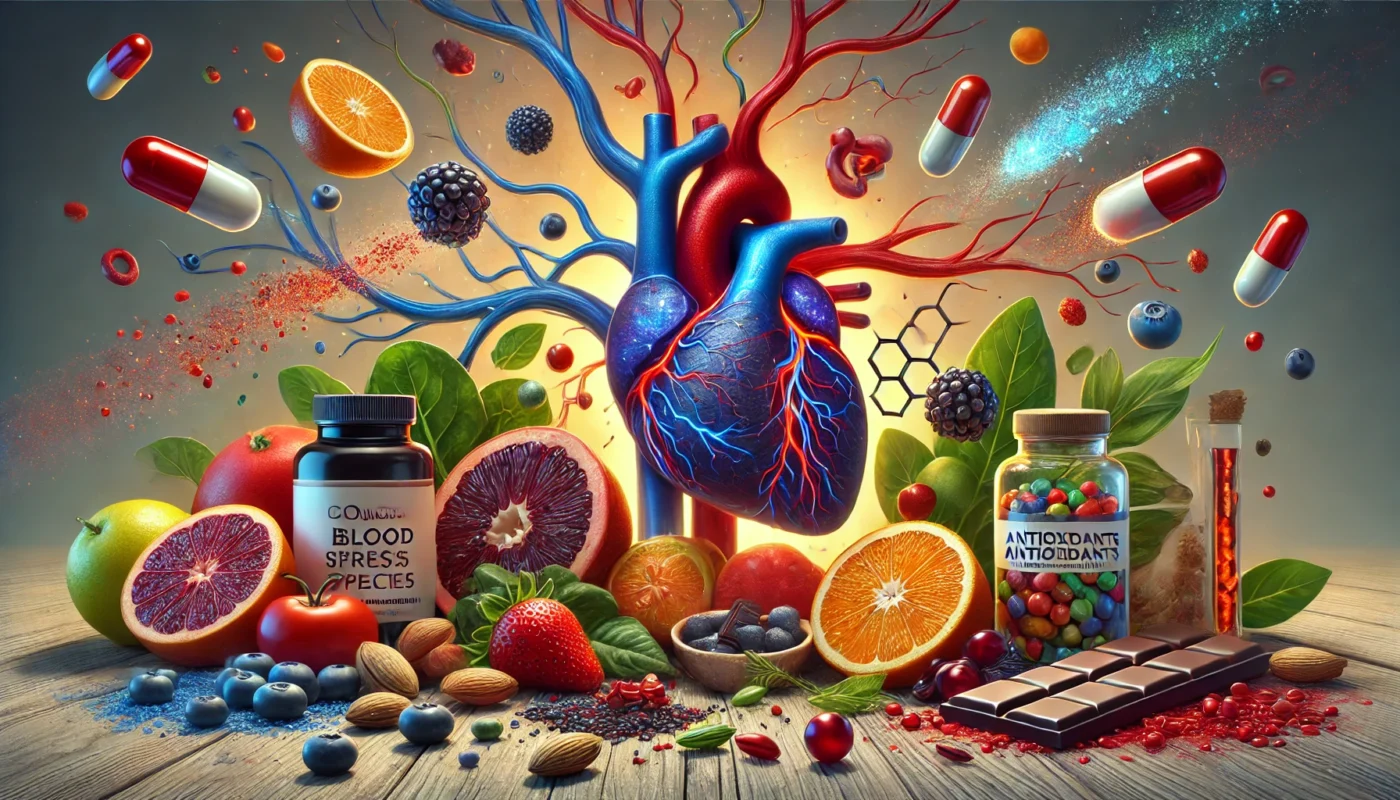The health of your blood vessels is critical to your overall cardiovascular function. Flexible, elastic blood vessels are essential for maintaining healthy blood pressure, promoting efficient circulation, and reducing the risk of vascular diseases such as atherosclerosis and hypertension. Magnesium glycinate, a highly bioavailable form of magnesium, has emerged as a powerful supplement for supporting […]
Tag Archives: Cardiovascular Wellness
Hypertension, or high blood pressure, has historically been considered a condition associated with aging. However, an alarming trend has emerged in recent years: the increasing prevalence of hypertension in young adults. According to the Centers for Disease Control and Prevention (CDC), nearly 1 in 4 adults aged 20 to 44 now suffers from high blood pressure, a statistic that highlights a significant shift in the age demographics of this condition. While genetics, lifestyle changes, and environmental factors all play a role, the implications of this trend are profound, as early-onset hypertension dramatically increases the risk of long-term cardiovascular complications. This article explores why hypertension is becoming more common in younger populations, its potential consequences, and strategies for prevention and management.
Hypertension, or high blood pressure, is a condition that affects millions worldwide and significantly increases the risk of cardiovascular disease, kidney failure, and stroke. While medications are often prescribed to control hypertension, lifestyle changes, particularly dietary modifications, are critical in preventing and managing the condition. Among these, the Dietary Approaches to Stop Hypertension (DASH) diet stands out as a scientifically validated and highly effective approach. This comprehensive guide explores the DASH diet, how it works, its benefits, and its role in hypertension management, supported by research and practical strategies for implementation.
Hypertension, or high blood pressure, is a widespread health condition affecting nearly one in three adults worldwide, according to the World Health Organization (WHO). Often called the “silent killer,” hypertension can lead to severe complications such as heart disease, stroke, and kidney failure if left unmanaged. While medication and dietary changes are critical in managing hypertension, incorporating relaxing and fulfilling hobbies into daily life can also significantly lower stress and blood pressure. This article explores how leisure activities like gardening, painting, and reading contribute to better heart health and offers tips on integrating these practices into your lifestyle.
Hypertension, or high blood pressure, is one of the leading risk factors for cardiovascular disease, affecting nearly half of all adults globally. For individuals managing hypertension, diet plays a crucial role, with excessive sodium intake, unhealthy fats, and calorie-dense meals being major contributors to elevated blood pressure. Fast food, often high in these components, poses unique challenges for maintaining heart health. However, with informed choices, it is possible to enjoy dining out while minimizing the impact on blood pressure. This article provides practical tips for navigating fast-food menus, understanding the risks, and making healthier choices.
Hypertension, or high blood pressure, is a prevalent chronic condition that affects over 1.28 billion adults worldwide, according to the World Health Organization (WHO). It is a significant risk factor for heart disease, stroke, and kidney failure, yet often goes unnoticed until complications arise. Among the many strategies for managing hypertension, magnesium intake has emerged as a critical, though sometimes overlooked, component. Magnesium, an essential mineral involved in numerous bodily functions, has been shown to play a vital role in regulating blood pressure. This article delves into the science behind magnesium’s role in hypertension, explains why magnesium-rich foods are beneficial, and provides practical tips for incorporating this nutrient into your diet.
Hypertension, or high blood pressure, is a major public health challenge, affecting over 1.28 billion adults worldwide, according to the World Health Organization (WHO). As a leading risk factor for cardiovascular disease, stroke, and kidney failure, hypertension necessitates effective management strategies. Among these, dietary interventions play a central role. Dietary fiber, in particular, has garnered attention for its ability to support vascular health and lower blood pressure. This article explores the role of fiber in preventing and managing hypertension, the mechanisms by which it impacts vascular health, and practical strategies to increase fiber intake.
Hypertension, or high blood pressure, affects more than 1.28 billion people globally, according to the World Health Organization (WHO). Despite its prevalence, hypertension remains a complex condition influenced by a combination of genetic, environmental, and lifestyle factors. Traditional treatment approaches often rely on generalized strategies, which may not effectively address the unique needs of every individual. Precision medicine, a revolutionary approach to healthcare, offers a pathway to more effective hypertension management. By leveraging advancements in genomics, data analytics, and personalized treatment plans, precision medicine is transforming how hypertension is diagnosed and treated.
Hypertension, or high blood pressure, is one of the leading causes of heart disease, stroke, and kidney failure worldwide. Affecting over 1.28 billion people globally, according to the World Health Organization (WHO), hypertension is often dubbed a “silent killer” because it typically develops without noticeable symptoms. Among the many factors contributing to hypertension, oxidative stress has emerged as a key player in the condition’s progression. Antioxidants, compounds that counteract oxidative damage, are now being explored as potential therapies for managing hypertension.
This article looks into the link between antioxidants and hypertension, examines the evidence supporting antioxidant-based treatments, and discusses how these therapies could complement existing approaches.
Hypertension, or high blood pressure, is a pervasive health concern affecting nearly half of adults worldwide, according to the World Health Organization (WHO). While it is well-known as a leading cause of cardiovascular diseases, strokes, and kidney failure, many people are unaware of the link between hypertension and sleep apnea. Obstructive sleep apnea (OSA), a condition marked by repeated interruptions in breathing during sleep, has been strongly associated with persistent and difficult-to-treat high blood pressure. Fortunately, treating sleep apnea with specialized devices, such as continuous positive airway pressure (CPAP) machines, can significantly improve sleep quality and lower blood pressure levels, ultimately reducing cardiovascular risks. This article explores the relationship between sleep apnea and hypertension, the mechanisms behind their connection, and how sleep apnea devices can play a vital role in managing high blood pressure.
- 1
- 2










